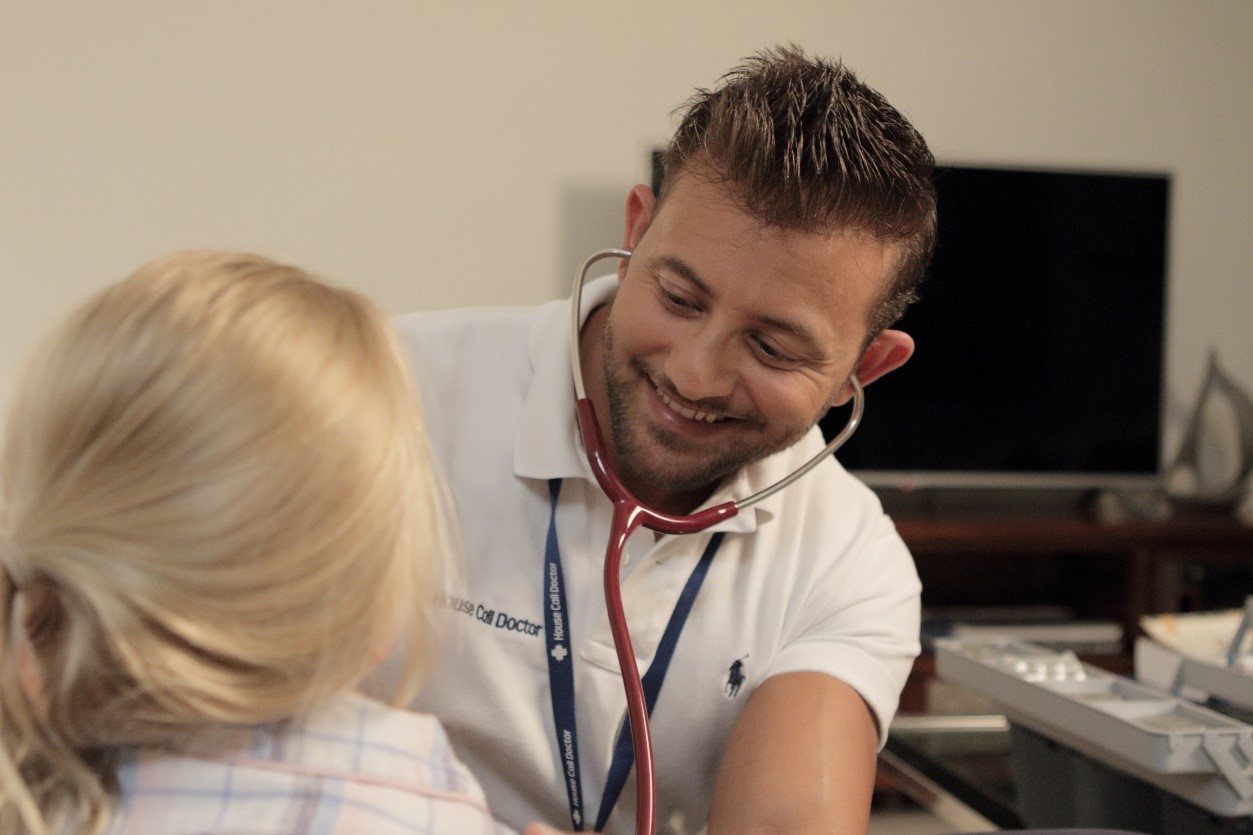Article By the Home Doctor Maryborough Team
A few reasons you can call an after-hours doctor


Every evening and weekend, many of our doctors treat patients in their own homes for a variety of different reasons. Whether it be severe infection or acute illness, our home doctors are available to provide the correct medical attention.
Though, what are some reasons you could call a home doctor? Here are a few of the main ones.
Sprains, strains and pains
A very common reason some patients call for a home doctor is because of sprains, strains and pains. Whether it be acute sprains from sporting/work-related injuries or neck, back and hip pain, it is important to see a doctor if necessary.
A few indicators you should see a doctor include:
- Being unable to walk more than a few steps without pain
- Being unable to move the affected area
- Having numbness near the injured area.
If you feel you may be suffering from a sprain or strain, some initial symptoms include:
- Pain
- Swelling
- Bruising
- Tenderness
- Heat (from inflammation in the joints or muscle)
- Limited ability to move the affected area.
While some patients tend to think their sprain or strain is only minor, medical attention is required to exclude serious injury which may need advanced treatment.
Examples of treatment your home doctor could advise include anti-inflammatory medication, rest, ice, or heat and pain-reliving medication. Alternatively, you may be referred to an emergency department for further assessment.
Infections
Skin infections are a regular reason our home doctors are called, with a few frequent types including:
- Impetigo (or school sores): Especially common in children, school sores are highly contagious and medical assessment is required. The main symptoms of the infection include red or itchy skin and blisters (mainly around the nose and mouth). There are several treatments for school sores including prescription antibiotics, ointments and creams. Depending on the severity, a home doctor will advise the appropriate treatment.
- Urticarial inflammations (or hives): Hives are typically caused by an allergic reaction and look quite similar to mosquito bites. They are red, itchy welts and can appear in varied shapes and sizes. There are many treatments for hives a home doctor can advise including antihistamines (depending on the seriousness, there are both over the counter and prescribed antihistamines available).
- Cellulitis: Cellulitis is a skin bacterial infection, usually occurring on the lower legs. It is caused when bacteria enter skin and spread to the tissue under it. The affected area will look red, swollen and will be tender to the touch. As cellulitis is more common in older people, it is very important to seek medical attention for the correct treatment (for example, antibiotics).
Gastro
Many patients will often book a home doctor for gastro. As gastro is highly contagious, it needs to be medically assessed so appropriate treatment can be advised. Examples mainly involve fluid replacement such as oral rehydration drinks, while severe cases may require admission to hospital. Signs you may have gastro include vomiting, diarrhoea, nausea, fever and stomach pains. Although symptoms typically last one to two days, it is important to seek medical attention as the main complication of gastro is dehydration, which can lead to severe illness.




